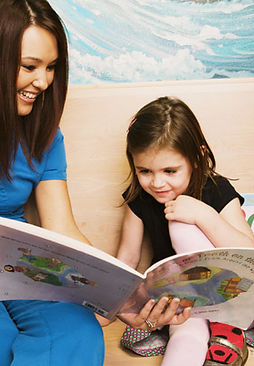
WHAT TO EXPECT FOR YOUR FIRST VISIT
We are committed to providing high quality dental care for children. We know you will find our child-centered environment the right place for your child's dental care. We strive to introduce children to dentistry in a positive manner, and to teach parents and children good oral care and prevention.
How to Prepare for Your First Visit
Our office (as well as the American Academy of Pediatric Dentistry) recommends that your child visit the dentist by his/her 1st birthday. You can make the first visit to the dentist enjoyable and positive. Your child should be informed of the visit and told that the dentist and his staff will explain all procedures and answer all questions.
It is best if you refrain from using words around your child that might cause unnecessary fear such as “needle”, “shot”, “pull”, “drill”, or “hurt”. The office makes a practice of using words that convey the same message, but are pleasant and non-frightening to the child.
The first visit to our office for you and your child should be informative and fun. Parents are always welcome and encouraged to accompany their children in the treatment area. Prior to beginning any treatment, an explanation of the recommended services will be discussed. We want you to understand your child's health and any recommended treatment!


Numbness Free Dentistry!
To help reduce anxiety and fear around injections, we offer Solea Laser, a new technology that allows cavity removal without the need for numbing. We can speak with you and your child to determine if they are a good candidate for "shot free" treatment based on the care they need. Solea can help many children get the positive start in dentistry we all want for them!
Common Questions

